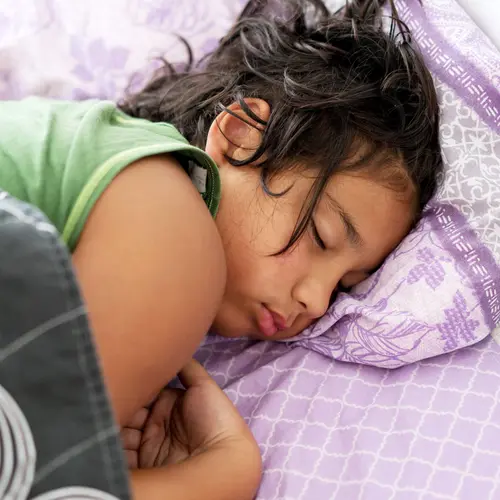Masturbation is a very natural and healthy part of childhood. And it can start at a younger age than you might think.
"It's the beginning of a lifelong learning experience about their bodies and, later, about sex and sexuality," says David Swanson, PsyD, a child and family psychologist practicing in Los Angeles
and author of HELP -- My Kid Is Driving Me Crazy: The 17 Ways Kids Manipulate Their Parents, and What You Can Do About It.
Why Children Masturbate
Young kids touch themselves primarily for two reasons. The first is for pleasure. "In the beginning stages starting between ages 3 and 5, kids are exploring their bodies. They learn what feels good, and they'll continue to touch themselves," Swanson explains. The second reason is for stress reduction and relaxation.
Masturbation becomes goal-driven around age 10. Boys in particular are trying to get to the point of orgasm, and at around 11 or 12, they may start seeking pornographic material. "Parents need to be careful about what kids can access online," Swanson says.
What should you do if you find your child touching themselves? Keep in mind that reactions matter. When adults become angry or tell their children that masturbating is wrong, it creates a lot of tension for them, Swanson says. "You want to teach children that it's OK to explore their bodies."
Talking About Masturbation
When faced with your child's sexual exploration, Swanson has these tips for approaching the conversation.
Cool down. Charged parental reactions to masturbation often create shame. Leave the room if you're upset, then come back to address the behavior calmly.
Private business. Young kids need to learn when and where it's acceptable to masturbate. Tell them, "You're learning about your body right now. It's nothing to be ashamed of; it's natural. But I insist you do it in private." By age 6, kids should be clear on this point.
Picture perfect. Redirect your preteen away from adult sexual images, which can negatively affect how they view other people. Say, "I understand you are curious and want to learn, so we can buy a book that talks about sex." Then buy one that is age-appropriate and after your child reads it, answer any questions that come up.


